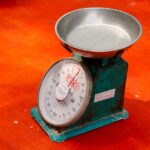Food safety is a crucial aspect of cooking and enjoying meals in your kitchen. Whether you are a professional chef or simply someone who loves to cook at home, understanding the basics of food safety is essential to prevent foodborne illnesses and keep yourself and your loved ones healthy.
One of the most important things to remember when it comes to food safety in the kitchen is proper hand hygiene. Always wash your hands with soap and water before and after handling food, especially raw meat, poultry, and seafood. This will help prevent the spread of harmful bacteria and reduce the risk of contamination.
Another key aspect of food safety in the kitchen is proper storage of perishable foods. Make sure to refrigerate or freeze perishable foods promptly to prevent them from spoiling. Keep your refrigerator at or below 40 degrees Fahrenheit and your freezer at or below 0 degrees Fahrenheit to maintain the freshness of your food.
When it comes to cooking meat, poultry, and seafood, using a food thermometer is essential to ensure that these foods are cooked to a safe internal temperature. Different types of meat require different cooking temperatures, so it is important to use a food thermometer to ensure that your food is cooked to the appropriate temperature.
Cross-contamination is another important factor to consider when it comes to food safety in the kitchen. This occurs when bacteria from one food item is transferred to another food item, usually through contact with cutting boards, utensils, or countertops. To prevent cross-contamination, always use separate cutting boards and utensils for raw meat, poultry, and seafood, and clean and sanitize your countertops regularly.
Proper cleaning and sanitizing of kitchen tools and surfaces is crucial to prevent the spread of bacteria and foodborne illnesses. Wash your cutting boards, utensils, and countertops with hot, soapy water after each use, and use a sanitizing solution to kill any remaining bacteria.
By understanding and following these basic principles of food safety in the kitchen, you can reduce the risk of foodborne illnesses and ensure that the meals you prepare for yourself and your loved ones are safe and delicious. Remember, food safety is not just important in a professional kitchen – it is essential in your home kitchen as well.




